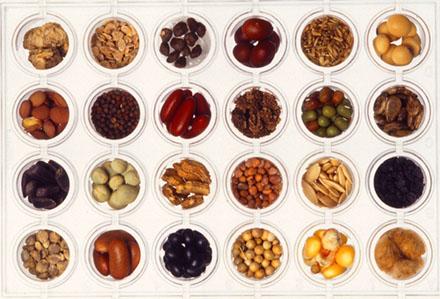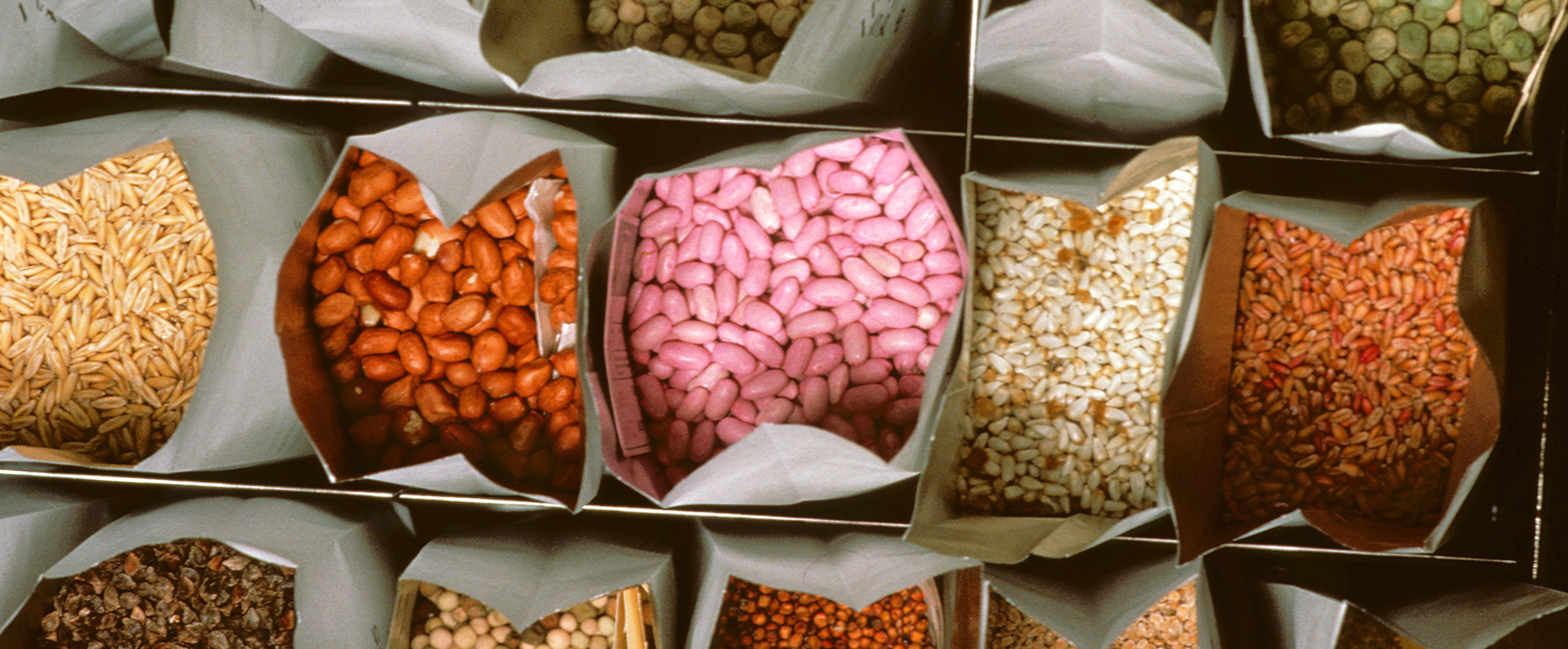National Gene Bank System Safeguards Our Crops

The National Plant Germplasm System (NPGS) refers to a collection of seeds, cuttings, bud wood, rootstocks, and other plant material—known as “germplasm”—stored at 19 ARS locations around the country in collaboration with Federal, State, and private organizations. All told, the collection encompasses more than 593,000 germplasm accessions (unique samples) representing 243 families, 2,550 genera, and 15,899 plant species from around the world, including wild relatives of major crops.
The NPGS serves as a sort of bank of genetic diversity that’s critical to the continued health and productivity of our crops, especially in the face of emerging pest and disease threats, environmental change, and other natural events. The diversity stored within the NPGS also is critical to breeding new crop varieties that are more nutritious, tastier, marketable, and versatile in terms of products that can be made from them. Indeed, the value of a single accession from the collection can last decades.
Not surprisingly, the demand for NPGS accessions used in research, breeding new varieties, and other applications is quite high. In 2018 alone, more than 209,700 accessions were shipped to 81 countries, making the collection a world resource that truly “pays it forward.”



